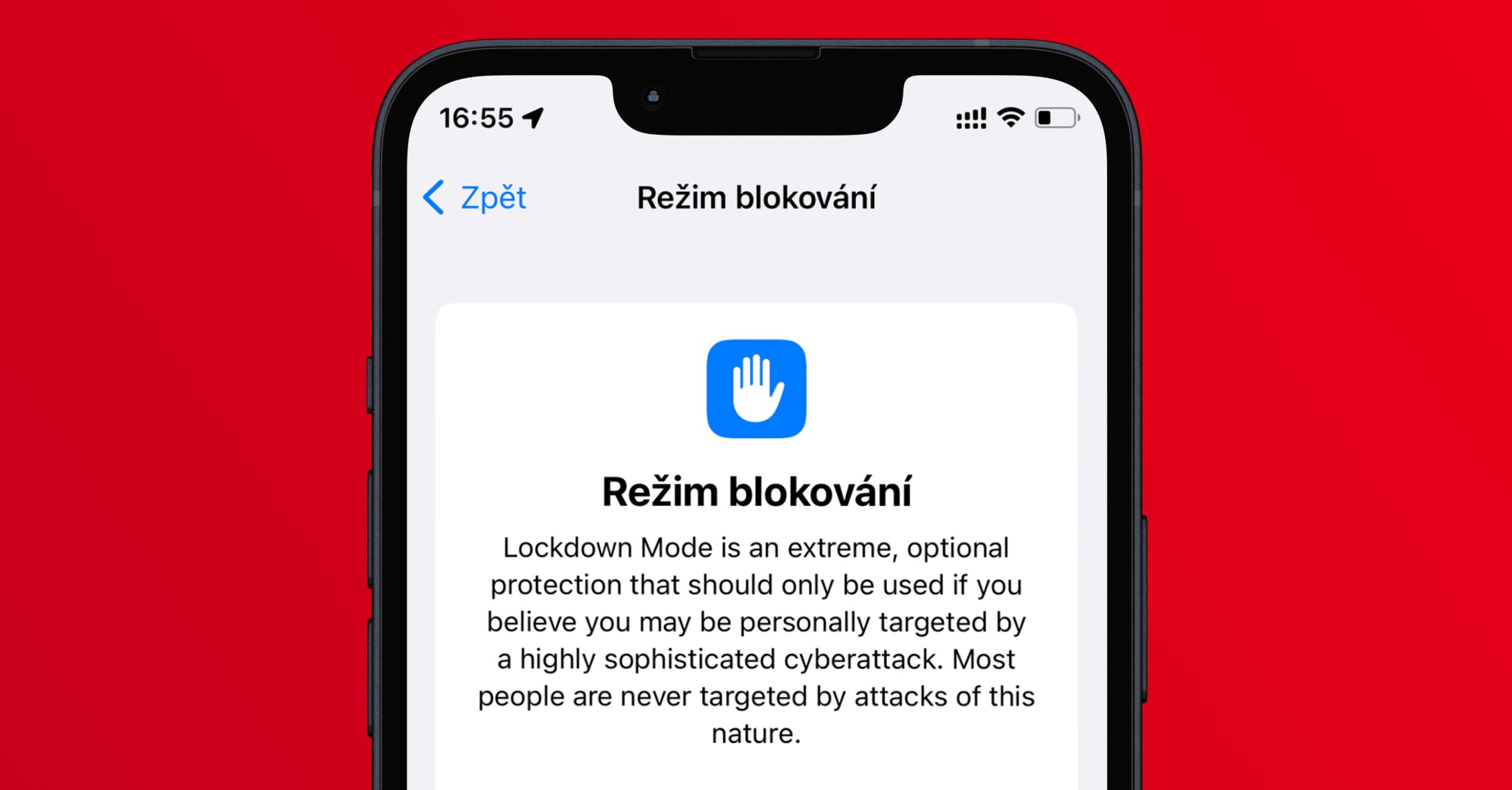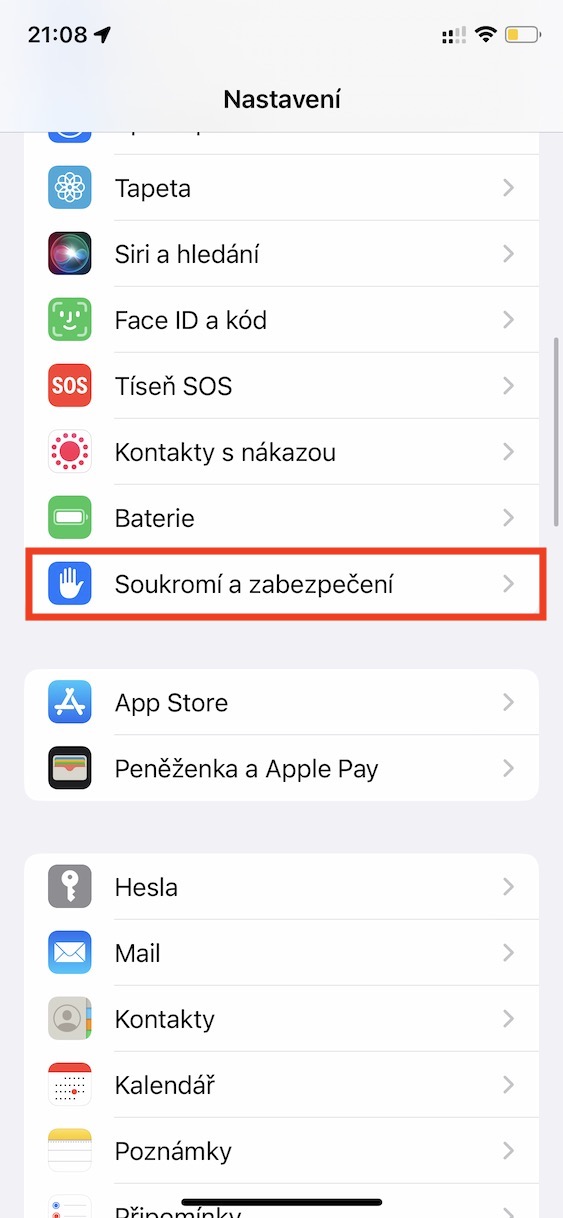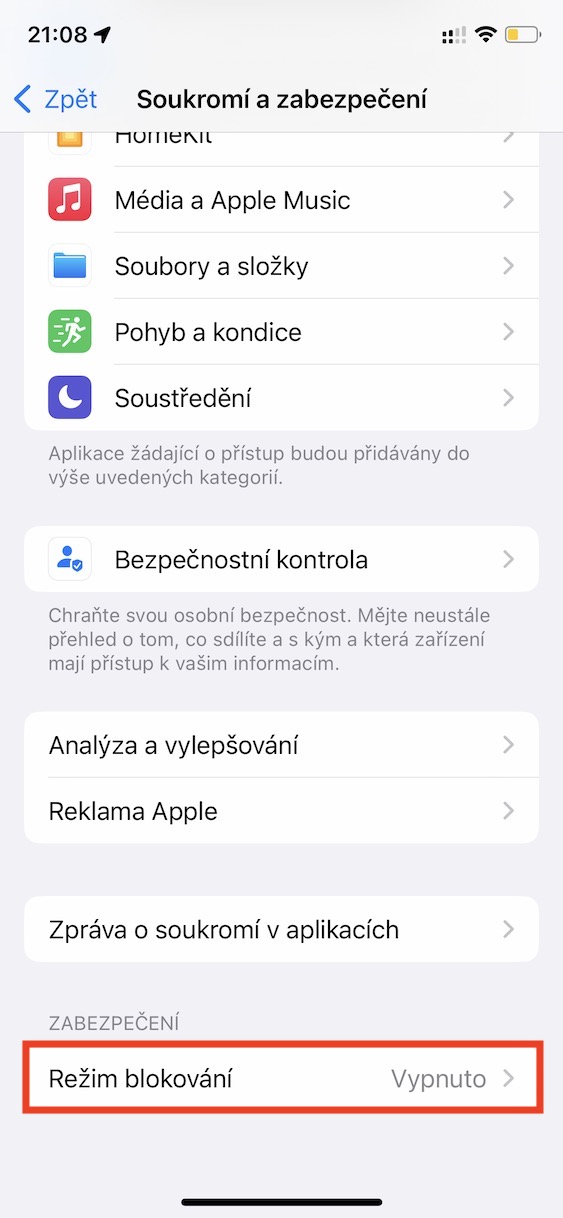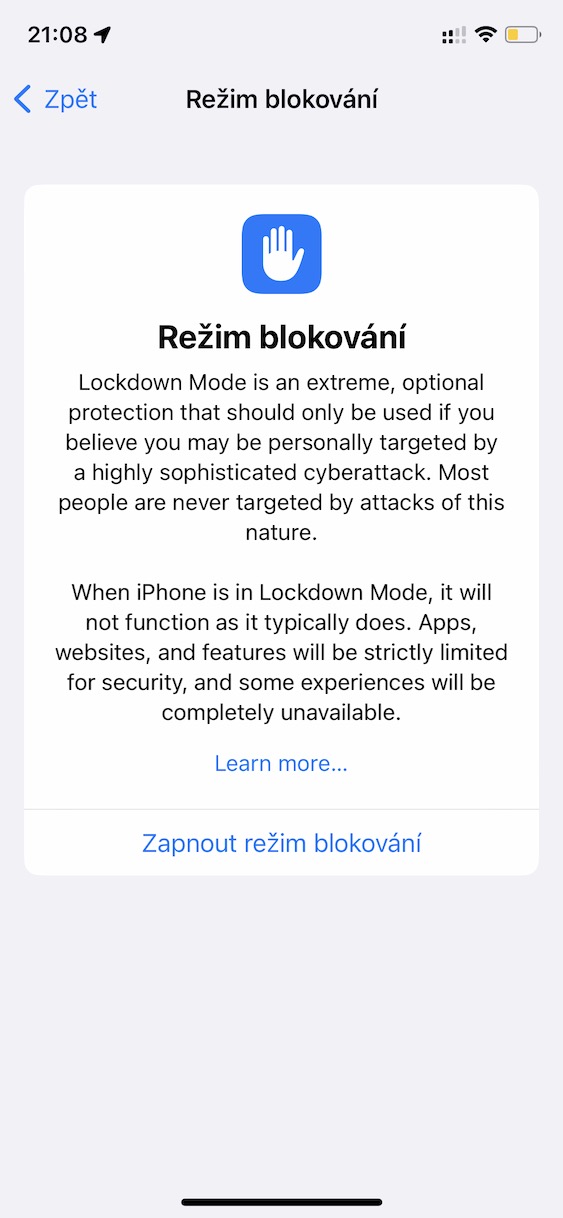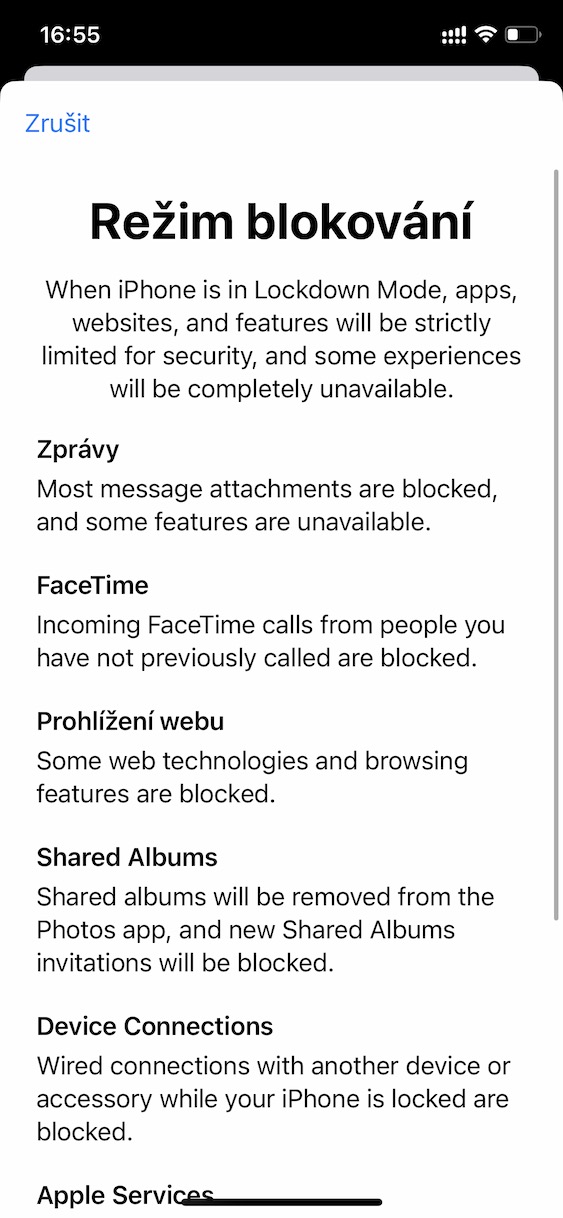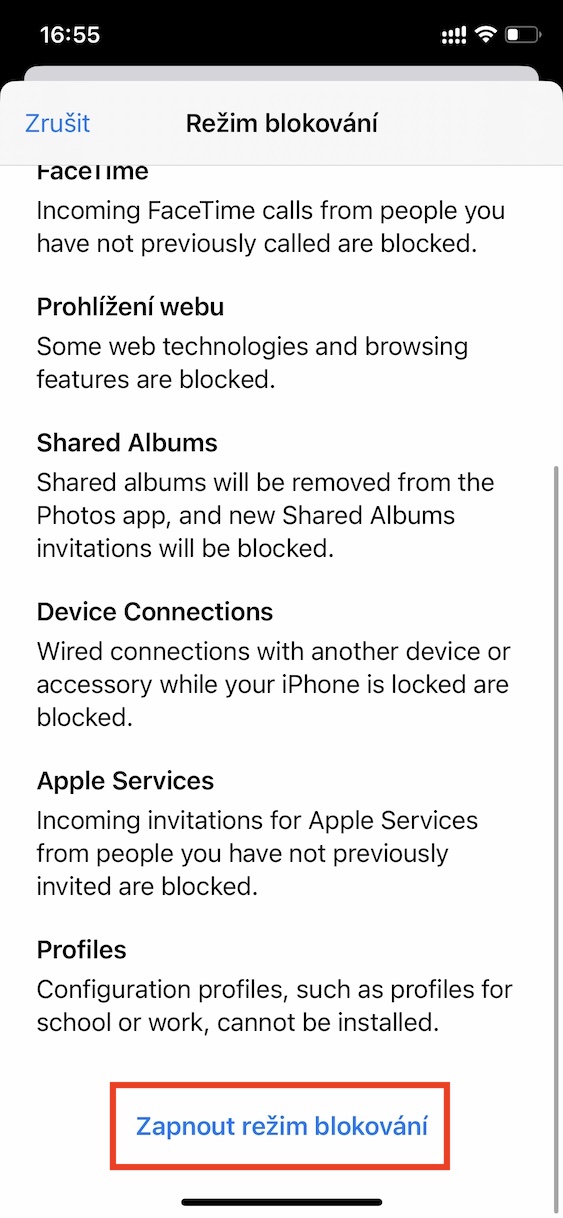The iOS 16 operating system brought a number of rather interesting novelties. Undoubtedly, the most attention is paid to the redesigned lock screen, which can now be personalized according to your needs, adding widgets or so-called live activities to it. Anyway, there are quite a few changes and news. After all, among them is also the so-called Lockdown Mode, with which Apple targets the minimum share of users who need 100% security of their device.
It could be interest you
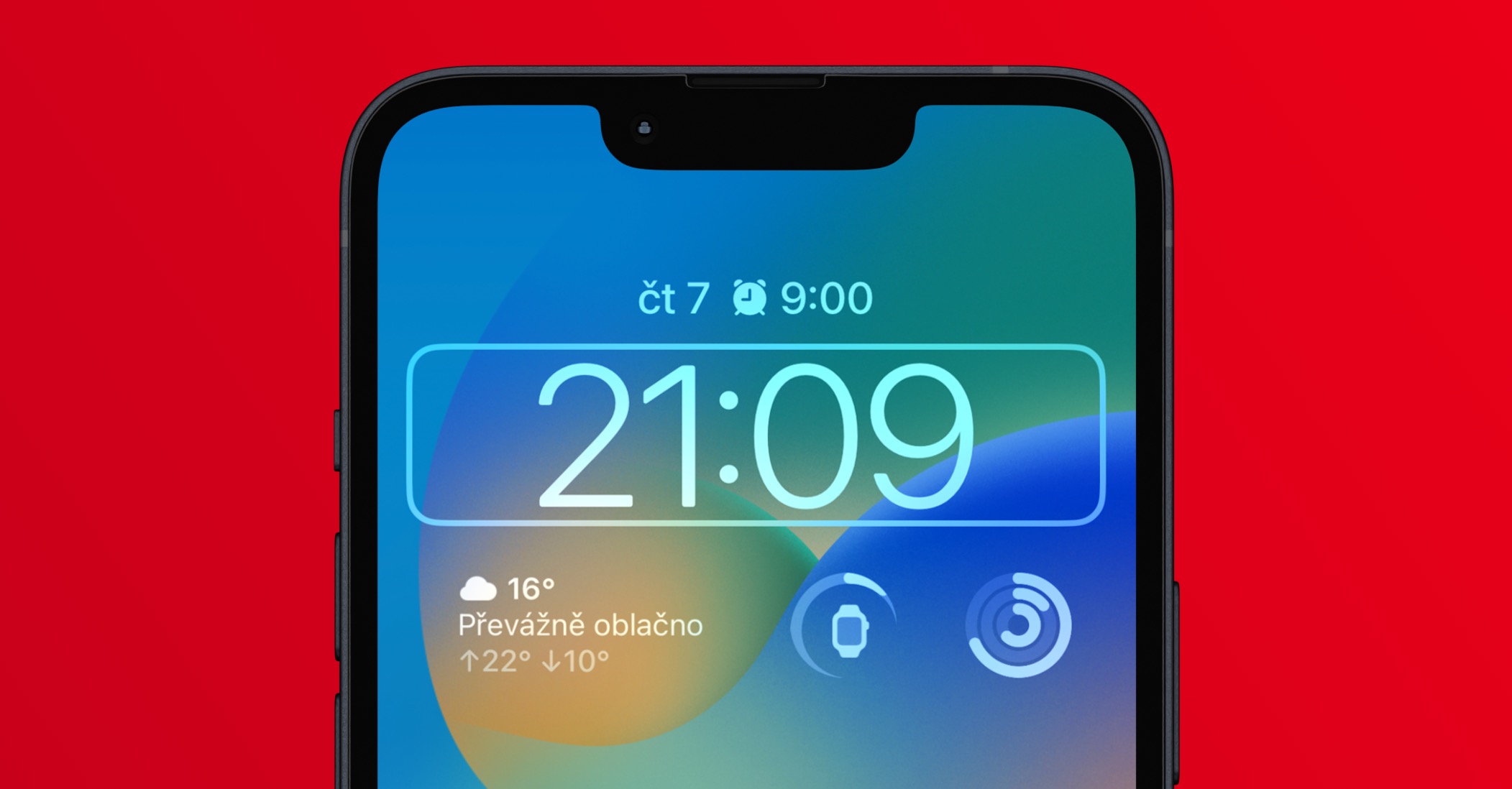
The purpose of Block Mode is to protect Apple iPhone devices from extremely rare and sophisticated cyber attacks. As Apple states directly on its website, this is an optional extreme protection that is intended for individuals who, because of their position or work, may become the target of these aforementioned digital threat attacks. But what exactly does the mode as such do, how does it protect the iPhone from being hacked, and why do some Apple users hesitate to add it? This is exactly what we are going to shed light on together now.
How Lock Mode works in iOS 16
First, let's focus on how iOS 16 Lock Mode actually works. After its activation, the iPhone transforms into a significantly different, or rather more limited, form, thereby maximizing the overall security of the system. As Apple states, it specifically blocks attachments in native Messages, some elements and more complex web technologies when browsing the web, incoming FaceTime calls from people you haven't been in contact with before, Households, shared albums, USB accessories, and configuration profiles.
Given the overall limitations, it's more or less clear that the vast majority of apple users will never find any use for this mode. In this case, users have to give up a number of common options that are typical for the daily use of the device. It is thanks to these restrictions that it is possible to maximize the overall level of security and successfully resist cyber attacks. At first glance, the mode looks great. This is because it brings additional protection to apple growers in need, which can be absolutely crucial for them at given times. But according to some, Apple is partly contradicting itself and practically going against itself.
Does Lock Mode indicate a crack in the system?
Apple relies on its products not only on their performance, design or premium processing. Security and the emphasis on privacy are also a relatively significant pillar. In short, the Cupertino giant presents its products as practically unbreakable and the safest ever, which can be directly related to Apple iPhones. This very fact, or the fact that the company needs to add a specialized mode to its operating system to ensure security, may cause some to worry about the quality of the system itself.
It could be interest you
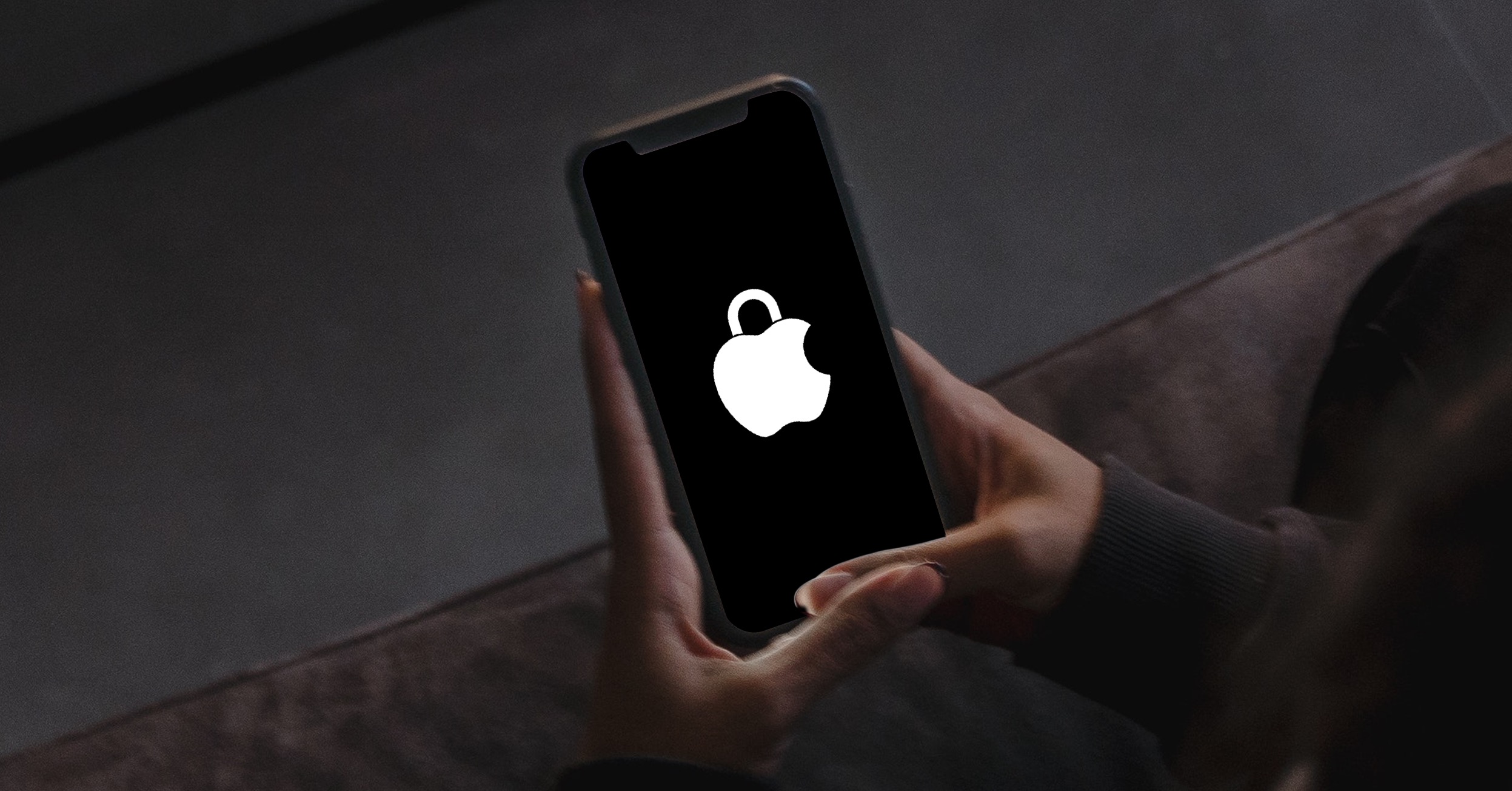
However, an operating system as such is an extremely demanding and extensive type of software, consisting of countless lines of code. Therefore, given the overall complexity and volume, it is more or less clear that from time to time some error may appear, which may not be immediately figured out. Of course, this applies not only to iOS, but to practically all existing software. In short, mistakes are made routinely, and their detection in such a huge project may not always go smoothly. On the other hand, this does not mean that the system is not safe.
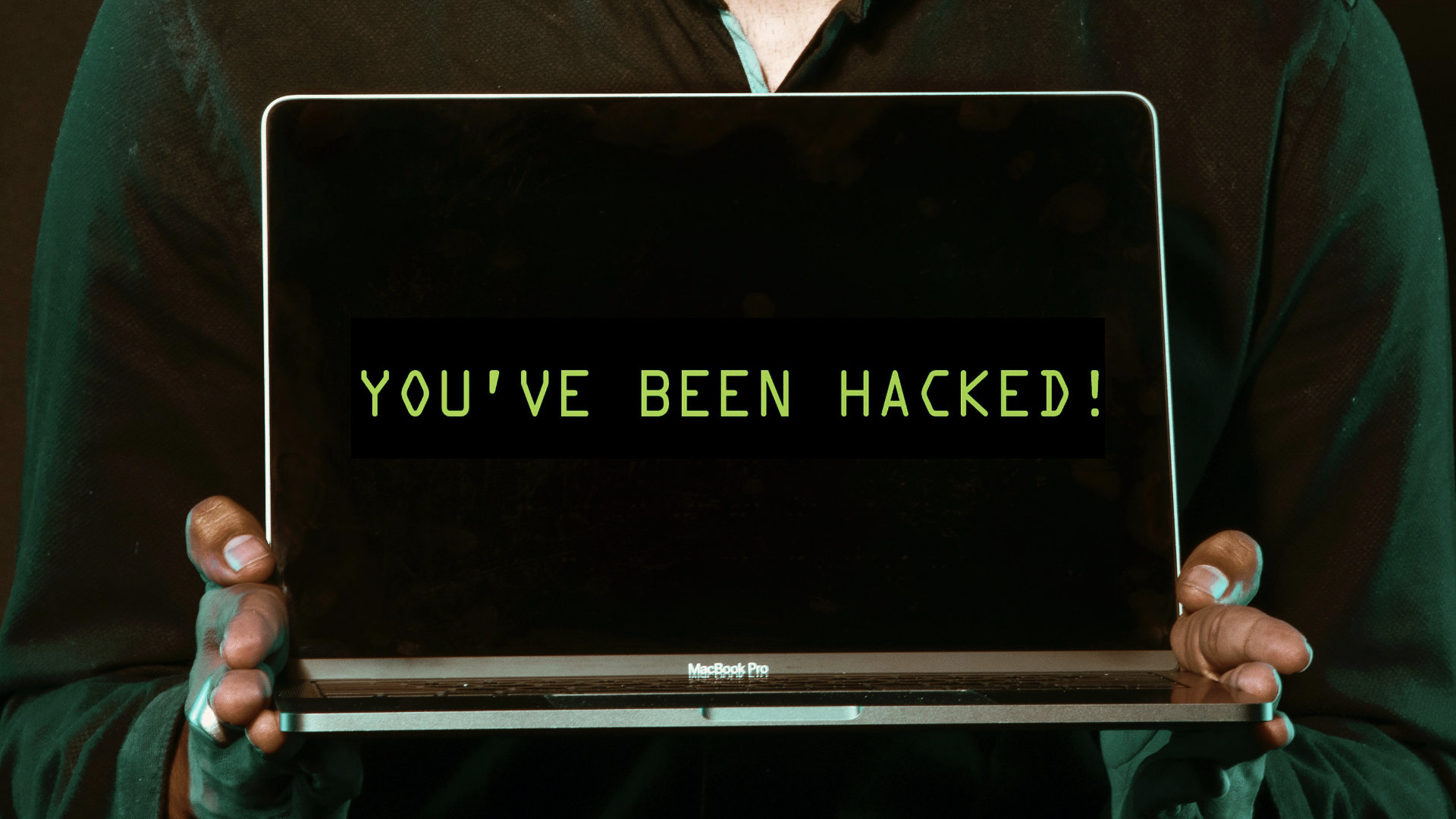
It is precisely this approach that is highly likely to be coined by Apple itself. In such cases, when a particular individual can actually face sophisticated digital threats, it is more than clear that an attacker will try all loopholes and bugs to attack him. Sacrificing some functions in this regard appears not only to be simpler, but above all to be a significantly safer option. In the real world, it works the other way around – first a new feature is introduced, it is then prepared, and only then does it deal with potential problems. However, if we limit these functions and leave them at the "basic" level, we are able to achieve much better security.
iOS security level
As we mentioned several times above, the new Blocking Mode is only intended for a handful of users. However, the iOS operating system already boasts really solid security at its core, so you have nothing to worry about as regular Apple users. The system is secured on several levels. We can quickly summarize that, for example, all data on the device is encrypted and data for biometric authentication is stored only on the device without being sent to the company's servers. At the same time, it is not possible to break the phone by so-called brute-force, because after several unsuccessful attempts to unlock it, the device is automatically locked.
It could be interest you
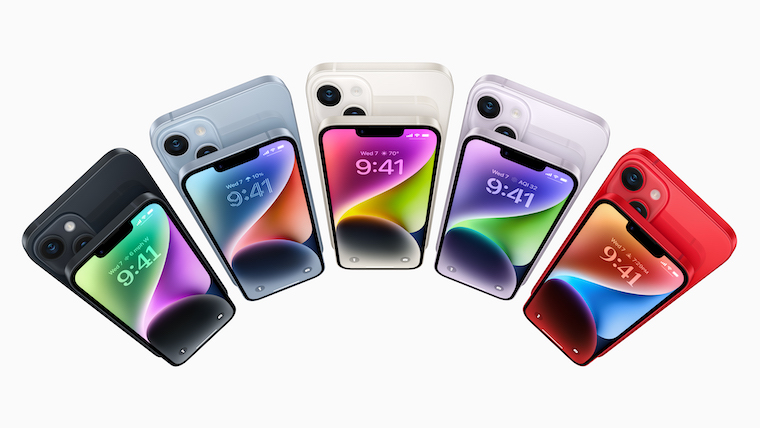
The relatively important Apple system is also in the case of the applications themselves. They are run in a so-called sandbox, i.e. isolated from the rest of the system. Thanks to this, it cannot happen that, for example, you download a hacked application that could subsequently steal data from your device. To make matters worse, iPhone applications can only be installed through the official App Store, where each application is checked individually to avoid such problems.
Is Lock Mode necessary?
Looking at the iOS security methods mentioned above, the question arises again as to whether Lockdown Mode is actually necessary at all. The greatest concerns about security have been circulating mainly since 2020, when an affair called the Pegasus Project shook the technological world. This initiative, which brings together investigative journalists from all over the world, has revealed that governments have been spying on journalists, opposition politicians, activists, businessmen and many other people through the Pegasus spyware, using technology developed by the Israeli technology company NSO Group. Allegedly, over 50 phone numbers were attacked in this way.
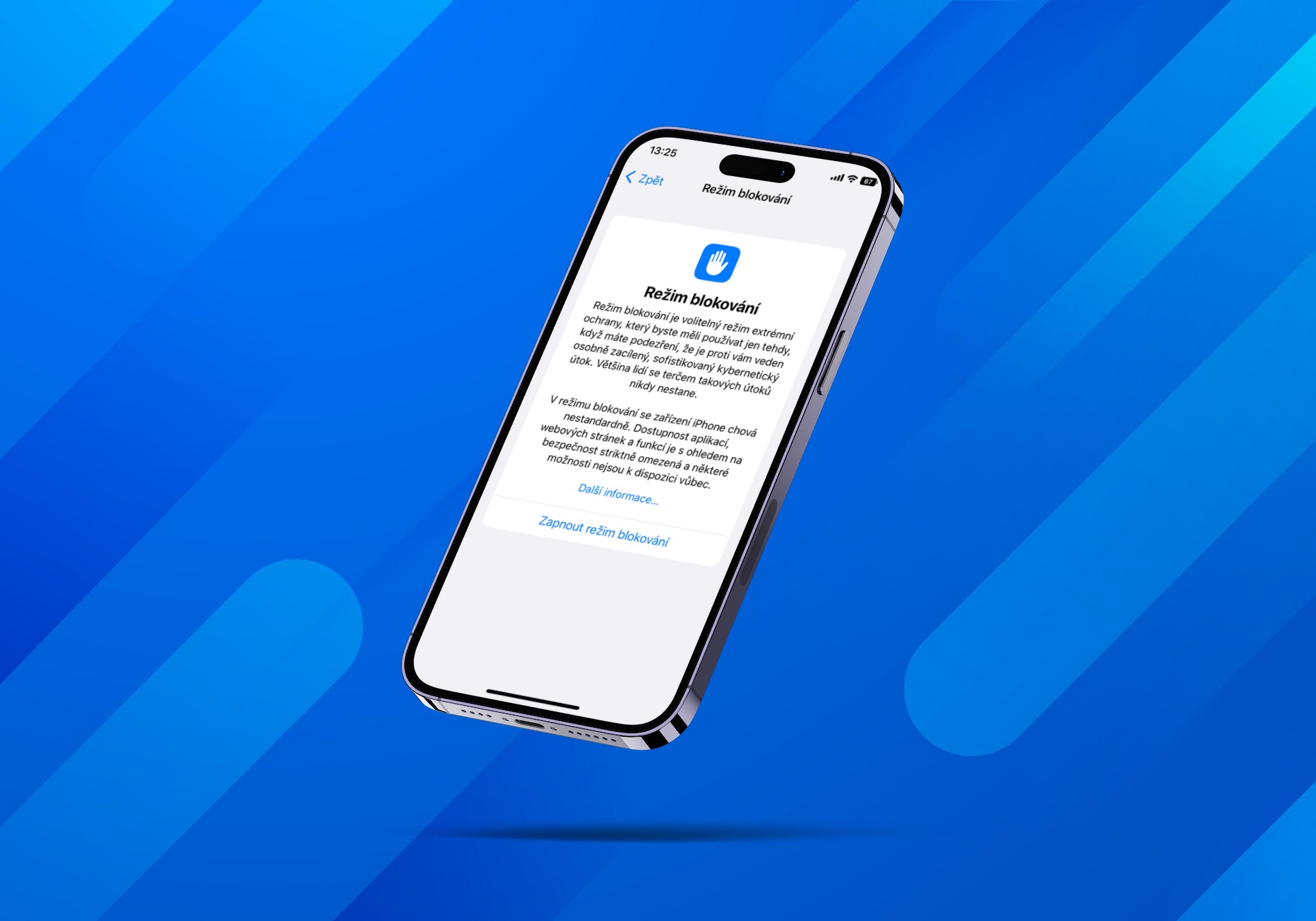
It is precisely because of this affair that it is appropriate to have an additional layer of security at your disposal, which pushes its quality several levels further. What do you think about the arrival of Blocking Mode? Do you think this is a quality feature emphasizing privacy and security, or would Apple phones be comfortable without it?
 Adam Kos
Adam Kos 